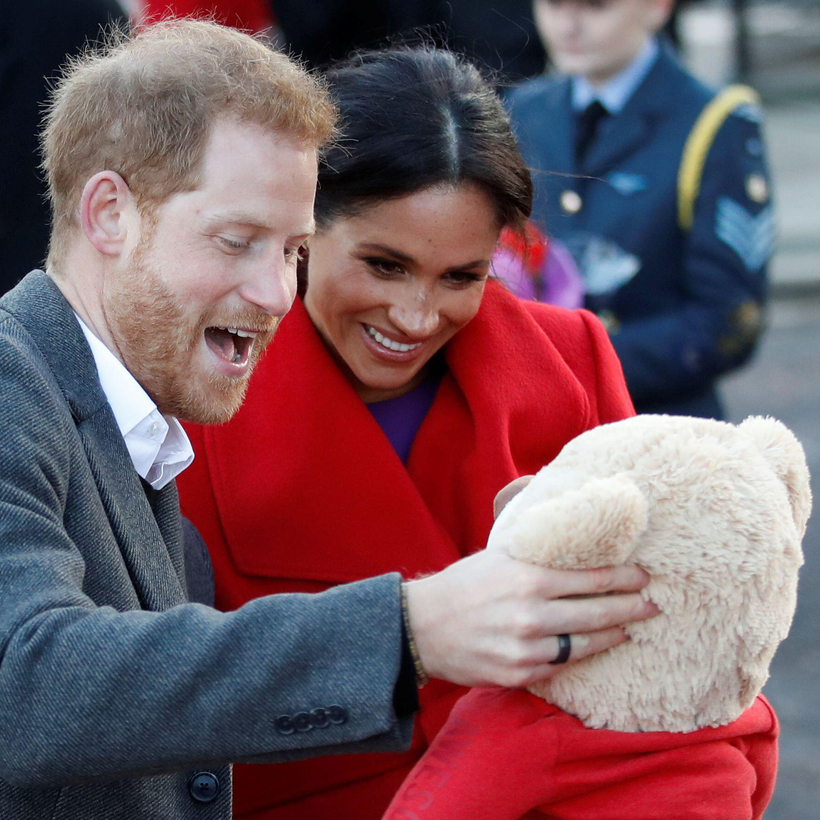Take it from me, publicizing a new children’s book is hard work. The newspapers ignore you, the bookstores ghettoize you, and, given the imbalance of the marketplace, you’ll have trouble finding shelf space among the acres of 30-year-old “classics” and scribblings by well-known people who aren’t actually writers.
So full marks to Meghan Markle, who this week launched her new children’s book, The Bench, by embarking on a magnificent three-pronged media assault. If you need reminding … those prongs were:
1. Already being internationally renowned.
2. Naming her newborn daughter after two women even more internationally renowned than she is.
And …
3. Threatening to sue the BBC in a blaze of all-consuming fury, for what might genuinely count as the least consequential reason of all time.
Perhaps we should start with the last one, given that it is so berserk. On the Friday before last, Meghan gave birth to a daughter. Touchingly, the baby is named after her paternal grandmother and great-grandmother. Lilibet Diana Mountbatten-Windsor is a beautifully chosen name, invoking not only Prince Harry’s mother but also the childhood nickname of the Queen that was given to her by her grandfather George V, when she had trouble saying her full name. It’s a sweet and charmingly informal tribute that comes as an olive branch, cooling down the fraught hostility that has existed between the couple and the royal family since long before the Oprah interview. Finally, a sensible move.
Then, a few days later, the BBC’s Today program innocuously happened to mention that Harry hadn’t sought permission from the Queen for the name. Which, again, is fine. Lots of children are named after their grandparents, and it isn’t necessarily something that has to be formally ratified beforehand. If anything, it’s a nice surprise.
But Prince Harry failed to see it like that. Instead, just 90 minutes after the BBC’s report, the couple’s quasi-journalist and quasi-mouthpiece Omid Scobie was telling the world that Harry called the Queen soon after the birth. Just in case that wasn’t enough, then came the lawyers. A furious missive from Schillings—Harry’s solicitors—accused the report of being “false and defamatory” and threatened the BBC with legal action.

It is the legal equivalent of setting your house on fire to get rid of an insect, not least because the BBC is sticking to its guns, adamant that its source is trustworthy. Because, really, who cares if the Queen knew about the name or not? You don’t. Nobody you know does. I don’t, and I’m being paid to write about it. It’s a nothing story that Prince Harry has attacked with a nuclear weapon, and as a result of his tantrum he looks even more petulant, whiny, and childish than ever before. If that is possible.
Still, the timing is impeccable. After all, Meghan’s book came out this week. Originating from a poem that Meghan wrote for Harry on Father’s Day, The Bench is described as “a thoughtful and heartwarming read-aloud” that “beautifully captures the special relationship between father and son, as seen through a mother’s eyes.”
Why The Bench? It could be because Prince Harry and his son, Archie, have a special little bench to bond on. Or it could be an allusion to Napoleon’s quote: “A throne is only a bench covered in velvet.” Perhaps we’ll never know.
A furious missive from Schillings—Harry’s solicitors—accused the report of being “false and defamatory” and threatened the BBC with legal action.
For once, the headlines might be helpful to her since, by all accounts, the book isn’t terrific. Despite being filled with very pretty watercolors by Caldecott-winning Christian Robinson, Meghan’s book has been roundly criticized by the press.
In what may count as its most positive review, The Independent noted that “the language and sentiment does feel like it’s aimed more at the adults reading than the children being read to,” which is generally the last thing that kids want in a book. The Times of London echoed the sentiment, calling it “a self-help manual for needy parents,” while adding that “it lacks the crucial ingredients for a successful tale for this age group: a good story and basic rhythm.”
The Telegraph, meanwhile, pulled even fewer punches, using its one-star review to label it “a grammar-defying set of badly rhyming cod homilies.” Basically, an inauthentic and moralizing lecture.
The New Statesman exclaimed that “it is mind-boggling, really, how bad the book is,” while the review in The Irish Times—written by a journalist who formerly worked in children’s publishing—forensically dismantled its narrative, its lack of consistency, its broken meter, its clumsy rhyming scheme, and its terrible ending. The review concludes with a weary sigh at the inevitability of Lilibet Diana inspiring a sequel, “which will be equally bad.”
Still, this is all beside the point, because the book is a success. At the time of this writing, The Bench was Amazon’s fifth-best-selling children’s book, and Meghan has announced plans to off-load 2,000 copies to school libraries so that children everywhere can learn what bad poetry looks like. Perhaps we could all take something from Meghan’s P.R. shamanship. When my second children’s book comes out next year, I now realize that I have no choice but to angrily soil myself as noisily as possible in public. It seems to be working for the Sussexes.
Stuart Heritage is a Kent, U.K.–based Writer at Large for AIR MAIL. His first children’s book is Jonathan the Magic Pony


